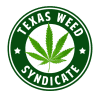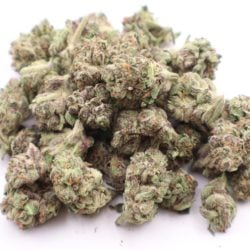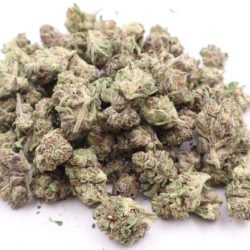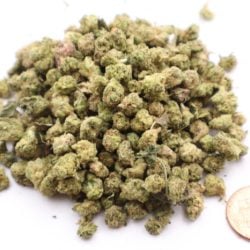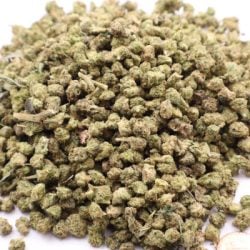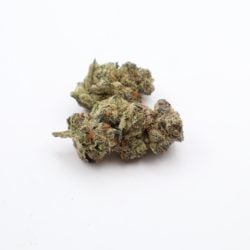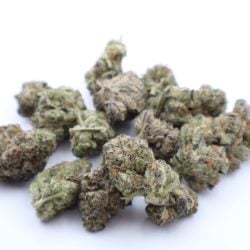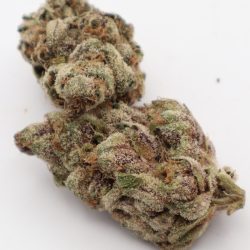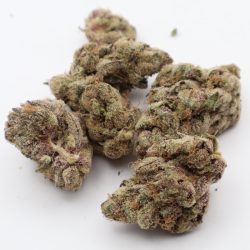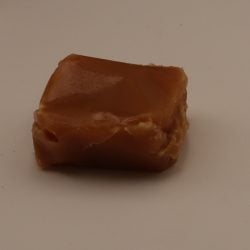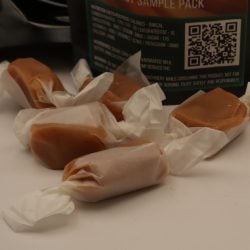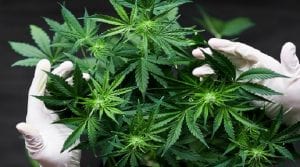The cannabis industry has exploded with new products, terminology, and legal nuances. For consumers, this means more options—but also more confusion. Hemp-derived Delta 9, Delta 8, HHC, and THCp are now common sights on dispensary shelves and online shops like TWS.
But how do these cannabinoids differ? What are the most persistent misconceptions? Let’s break down the facts and compare these popular cannabinoids head-to-head.
- Hemp-Derived Delta 9 vs. “Regular” THC: Clearing Up the Confusion
Table of Contents
What is Delta 9 THC?
Delta-9-tetrahydrocannabinol (Delta 9 THC) is the primary psychoactive compound in cannabis, responsible for the classic “high.” It binds with CB1 receptors in the brain, producing effects like euphoria, relaxation, altered perception, and increased appetite.
What Does “Hemp-Derived” Mean?
- Hemp-derived Delta 9 refers to Delta 9 THC extracted from hemp plants (cannabis with less than 0.3% Delta 9 THC by dry weight), as defined by the 2018 Farm Bill.
- Marijuana-derived Delta 9 comes from cannabis plants with higher concentrations of THC.
Are They Different Cannabinoids?
No. The molecular structure of Delta 9 THC is identical whether it’s sourced from hemp or marijuana.
The difference is legal and regulatory:
- Hemp-derived Delta 9 is federally legal if the product contains no more than 0.3% Delta 9 THC by dry weight.
- Marijuana-derived Delta 9 is federally illegal, but may be legal at the state level.
“At a molecular level, there is no difference between regular and hemp-derived delta-9.”
Common Misconceptions
- Myth: Hemp-derived Delta 9 is weaker or non-psychoactive.
- Fact: It’s chemically identical and can be just as potent, depending on the product’s formulation.
Myth: Hemp-derived Delta 9 is a different cannabinoid.
- Fact: It’s the same compound; only the source and legal status differ.
- Myth: All hemp products are non-intoxicating.
-
- Fact: Hemp-derived Delta 9 can produce the same intoxicating effects as marijuana-derived Delta 9 if consumed in sufficient quantities.
-
- THCA Flower
Blue Mamba B Buds THCA Flower Balanced Hybrid
- $50.00 – $100.00Price range: $50.00 through $100.00
- Select options This product has multiple variants. The options may be chosen on the product page
-
- THCA Flower
Tangerine Dreams Sativa Micro Buds THCA Flower
- $35.00 – $60.00Price range: $35.00 through $60.00
- Select options This product has multiple variants. The options may be chosen on the product page
-
- THCA Flower
King Louie Indica Dominant THCA Flower
- $37.80 – $180.00Price range: $37.80 through $180.00
- Select options This product has multiple variants. The options may be chosen on the product page
-
- THCA Flower
Purple Sizzurp Indica Dominant THCA Flower
- $37.80 – $180.00Price range: $37.80 through $180.00
- Select options This product has multiple variants. The options may be chosen on the product page
2. Delta 9 vs. Delta 8 THC: Structure, Effects, and Legality
| Aspect | Delta 9 THC | Delta 8 THC |
|---|---|---|
| Source | Abundant in marijuana and hemp | Trace amounts in cannabis; mostly synthesized from CBD |
| Chemical Structure | Double bond on 9th carbon atom | Double bond on 8th carbon atom |
| Psychoactivity | Strong, classic “high” | Milder, less potent “high” |
| Effects | Euphoria, altered perception, appetite increase | Milder euphoria, often less anxiety, more clear-headed |
| Legality | Federally illegal unless <0.3% in hemp | Legal gray area; often banned at state level |
| Production | Extracted directly from cannabis | Chemically converted from CBD |
| Safety | Regulated, tested in legal markets | Often unregulated, risk of contaminants |
Key Takeaways
- Delta 8 THC is a natural cannabinoid but exists in very low concentrations in cannabis. Most Delta 8 on the market is synthesized from CBD extracted from hemp.
- Delta 8’s effects are milder due to its weaker binding to CB1 receptors. Many users report less anxiety and a more manageable experience compared to Delta 9.
- Legal status: Delta 8 occupies a legal gray area; it’s technically legal under the 2018 Farm Bill if derived from hemp, but many states have banned it due to safety and regulatory concerns.
3. Delta 9 vs. HHC (Hexahydrocannabinol): What’s the Difference?
| Aspect | Delta 9 THC | HHC |
|---|---|---|
| Source | Cannabis (marijuana or hemp) | Rare in cannabis; usually synthesized from CBD |
| Chemical Structure | Contains a double bond in the cyclohexyl ring | Hydrogenated form of THC; no double bond |
| Psychoactivity | Strong, classic “high” | Reported to be milder than Delta 9, but stronger than Delta 8 |
| Effects | Euphoria, altered perception, appetite increase | Euphoria, relaxation, some report less anxiety |
| Legality | Federally illegal unless <0.3% in hemp | Legal status unclear; often sold as hemp-derived |
| Production | Extracted from plant | Created by hydrogenating THC or CBD |
Key Takeaways
- HHC is a hydrogenated form of THC, created by adding hydrogen atoms to the molecule. This process changes its structure and effects.
- Effects are reported to be similar to THC but often described as less intense than Delta 9 and more potent than Delta 8.
- Legality is ambiguous; HHC is often marketed as hemp-derived, but its regulatory status is not well defined.
4. Delta 9 vs. THCp (Tetrahydrocannabiphorol): The Potency Outlier
| Aspect | Delta 9 THC | THCp |
|---|---|---|
| Source | Cannabis | Trace amounts in cannabis; synthesized for products |
| Chemical Structure | Seven-carbon side chain | Longer alkyl side chain than Delta 9 |
| Psychoactivity | Strong, classic “high” | Reported to be up to 30x more potent at CB1 receptor |
| Effects | Euphoria, altered perception, appetite increase | Intense euphoria, strong psychoactivity, limited research |
| Legality | Federally illegal unless <0.3% in hemp | Legal status unclear; often sold as hemp-derived |
| Production | Extracted from plant | Isolated or synthesized in labs |
Key Takeaways
- THCp is a recently discovered cannabinoid found in trace amounts in cannabis. It is structurally similar to Delta 9 but has a longer side chain, allowing it to bind much more strongly to CB1 receptors.
- Effects are reportedly much stronger than Delta 9, but research is extremely limited. Most products use synthesized THCp due to its scarcity in nature.
- Legality is uncertain, as with many minor cannabinoids.
5. How These Cannabinoids Came to Market
- Delta 9 THC has always been present in cannabis and is the most studied and regulated cannabinoid.
- Hemp-derived Delta 9 became widely available after the 2018 Farm Bill, which legalized hemp and its derivatives, provided they contain less than 0.3% Delta 9 THC by dry weight.
- Delta 8 THC, HHC, and THCp rose in popularity due to loopholes in the Farm Bill. Manufacturers convert CBD (abundant in hemp) into these cannabinoids through chemical processes, allowing them to create psychoactive products that skirt federal restrictions on marijuana.
6. Main Differences and Effects: Quick Reference Table
| Cannabinoid | Source | Psychoactivity | Main Effects | Legal Status (US) | How It’s Made |
|---|---|---|---|---|---|
| Delta 9 THC | Marijuana/Hemp | Strong | Euphoria, relaxation | Federally illegal (>0.3% in hemp); state-dependent | Extracted from plant |
| Hemp-Derived Delta 9 | Hemp | Strong | Same as above | Federally legal (<0.3% by dry weight) | Extracted or converted from CBD |
| Delta 8 THC | Hemp (synthesized) | Mild-Moderate | Milder high, less anxiety | Legal gray area; banned in some states | Synthesized from CBD |
| HHC | Hemp (synthesized) | Mild-Moderate | Euphoria, relaxation | Unclear, often sold as legal | Hydrogenated from THC or CBD |
| THCp | Hemp (trace, synthesized) | Very Strong | Intense euphoria, strong high | Unclear, often sold as legal | Isolated or synthesized |
-
- THC 9, Delta 8 & CBD Gummies For Sale
THCA 50mg Caramels
- $5.00 – $60.00Price range: $5.00 through $60.00
- Select options This product has multiple variants. The options may be chosen on the product page
7. What Should Consumers Know?
- Potency and effects vary not just by cannabinoid, but by product formulation and individual tolerance.
- Safety and quality are major concerns, especially for synthesized cannabinoids like Delta 8, HHC, and THCp, which may be produced with little oversight.
- Legal status is in flux. Always check your state’s laws before purchasing or consuming these products.
8. Conclusion: Navigating the Cannabinoid Marketplace
Understanding the differences between hemp-derived Delta 9, Delta 8, HHC, THCp, and traditional THC is crucial for safe and satisfying cannabis experiences. While the molecular structure of Delta 9 is the same regardless of source, the legal and regulatory landscape varies widely. Delta 8, HHC, and THCp offer alternative effects and legal loopholes, but come with their own risks and uncertainties.
For a trusted selection of compliant Delta 9, Delta 8, and other cannabinoid products, TWS offers a curated marketplace and dispensary finder to help you make informed choices.
Stay informed, stay safe, and enjoy exploring the ever-evolving world of cannabinoids.
